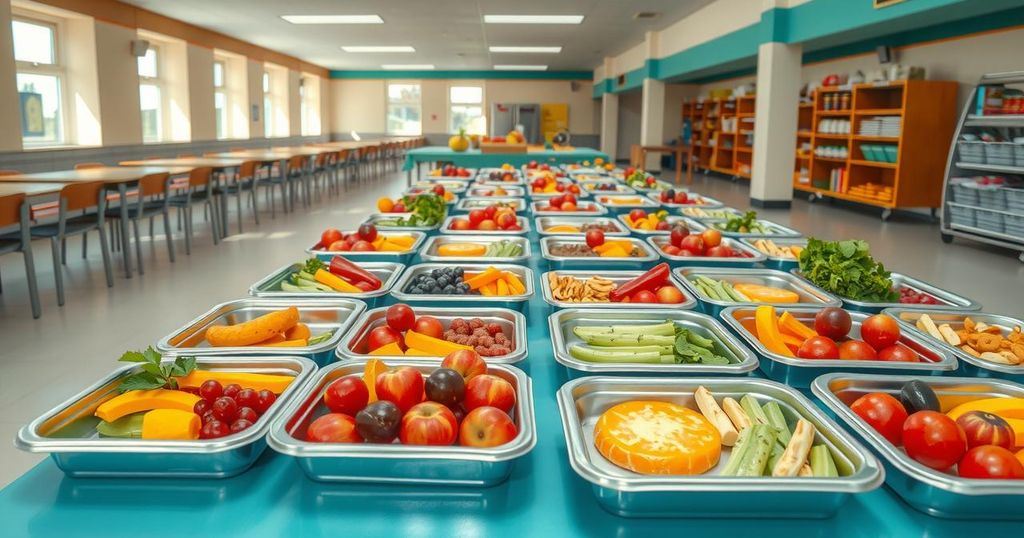Dr. Hesbon Owila: Beyond Chapo, Analyzing Kenya’s School Feeding Initiative

Kenya’s recent school feeding debate features President William Ruto’s plan to supply a chapo-making machine to support needy children. Although this initiative seems well-intentioned, it fails to address the broader economic and food insecurity challenges facing many families and may perpetuate dependency rather than delivering sustainable solutions.
In recent days, a noteworthy development has occurred in Kenya as President William Ruto vowed to donate a one-million-chapo-making machine intended to bolster Governor Johnson Sakaja’s school feeding initiative. This proposal has ignited considerable debate on social media, where many individuals have mockingly labeled the president as “El Chapo.” From a symbolic interactionist viewpoint, notably articulated by George Herbert Mead and Herbert Blumer, food transcends mere sustenance and assumes profound social significance.
The cultural resonance of chapati, affectionately known as chapo in Kenya, extends beyond simple nutrition; it embodies collective memories shaped by childhood and social customs. During youth, its availability marked special occasions, earning admiration and elevating social status within communities. Chapati became a symbol of hospitality and reciprocity, as communal sharing bound neighbors through festive meals.
Even in contemporary society, chapo signifies the fruits of labor, particularly among workers in the construction sector where it, alongside beans, serves as a well-deserved reward after arduous work. Thus, chapo symbolizes dignity, effort, and a small yet meaningful indulgence beyond sustenance, resonating deeply within the Kenyan context.
President Ruto’s pledge of a chapo-making machine for schoolchildren signifies an effort to improve meal quality, particularly for children in impoverished communities. Many parents and local groups have embraced this initiative as a potential strategy to alleviate hunger in educational settings.
Yet, this commitment warrants scrutiny. While providing chapo in schools may serve immediate needs, it fails to confront the underlying issues of food insecurity and economic distress. Parents in Nairobi necessitate not just the provision of meals at school; they require sustainable livelihoods that enable access to nutritious food at home.
Focusing on school meals could inadvertently foster dependency rather than engendering enduring solutions. This approach resembles giving fish rather than imparting the skills to catch them. Although feeding children may enhance school attendance, it neglects the core economic challenges hindering families’ abilities to provide sustenance.
Furthermore, the wider school feeding effort initiated by the county government introduces legal and structural complexities. According to Kenya’s devolved governance framework, counties should finance Early Childhood Development programs, yet many public centers suffer from lack of funding, forcing parents to resort to expensive private schools. Thus, prioritizing a chapo machine over addressing critical educational deficiencies signifies a misallocation of resources.
Ultimately, the promise of chapo transcends mere nourishment; it symbolizes a government that, to some extent, has failed to cultivate an environment conducive to realizing aspirations. Instead of delivering ephemeral prosperity, it is imperative that the government empowers its citizens with resources and opportunities for true economic independence. Only then will chapo embody not only aspiration but also substantial progress.
In conclusion, while the introduction of a chapo-making machine for school feeding represents a commendable intention to combat hunger among children, it ultimately serves as a superficial solution to deeper systemic issues. The Kenyan government should focus on creating sustainable economic opportunities for families rather than merely providing short-term relief through food initiatives. Empowering citizens with the means to afford nutritious meals and addressing educational funding gaps is essential for fostering genuine progress and self-sufficiency.
Original Source: www.capitalfm.co.ke







